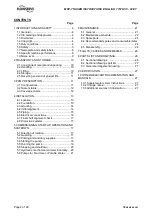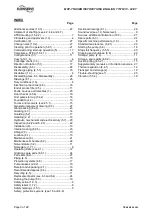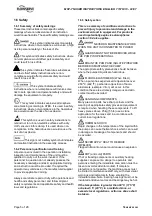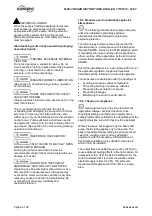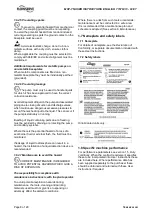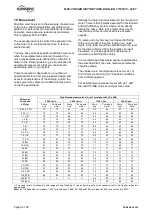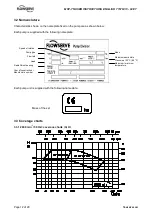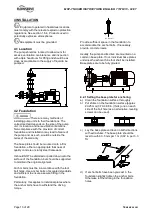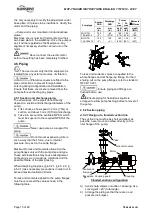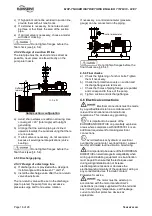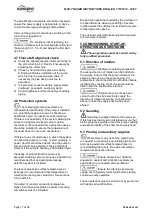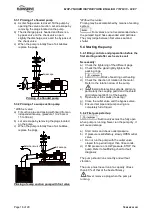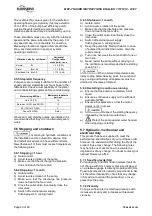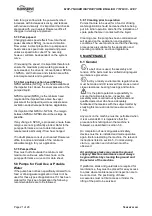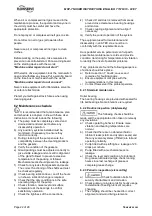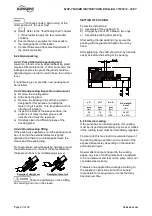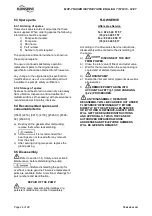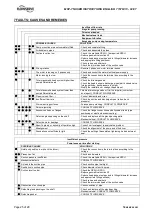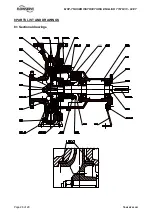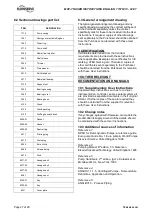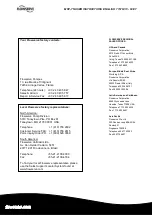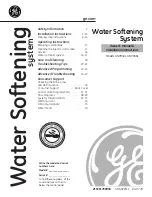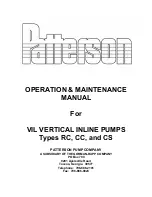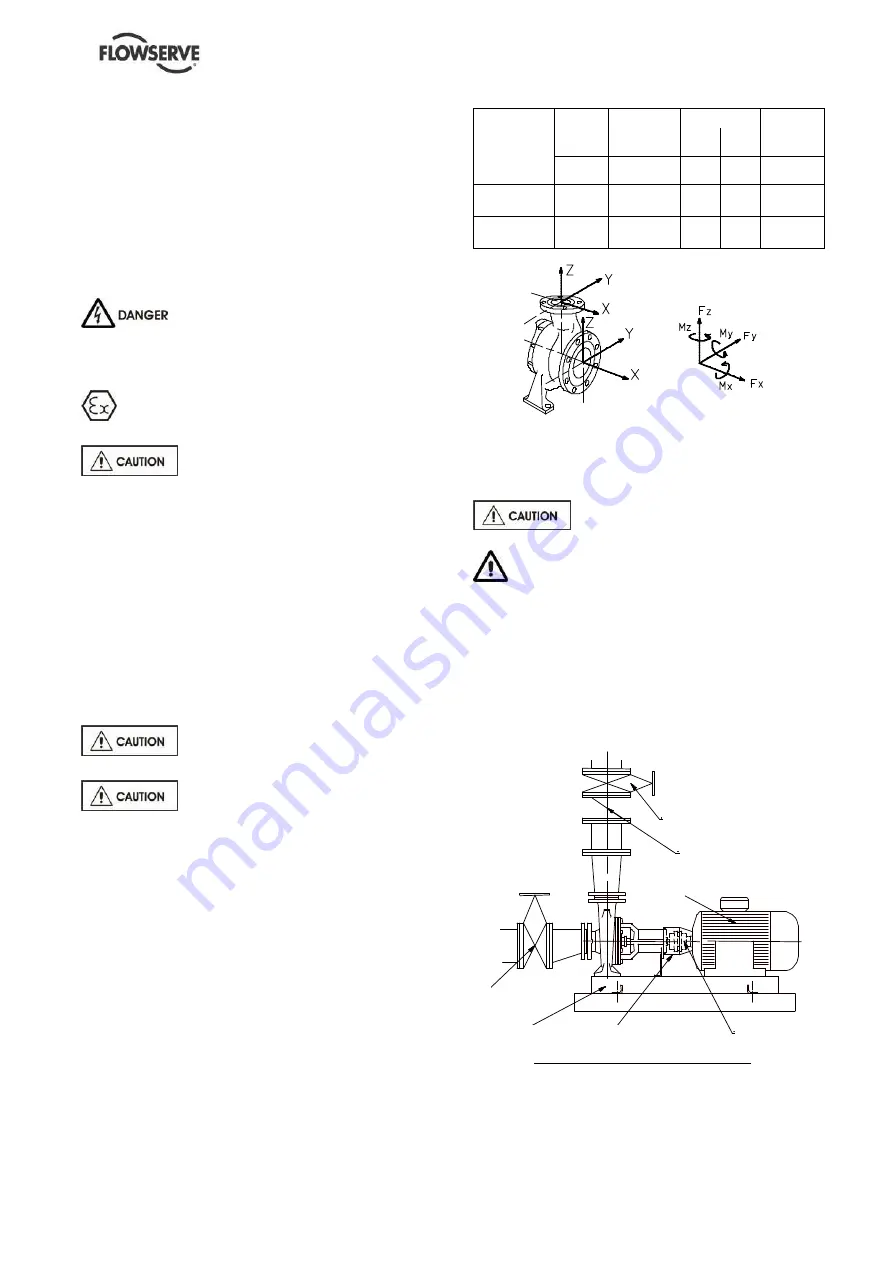
MHP-TN USER INSTRUCTIONS ENGLISH 71576313 - 02/07
Page 15 of 28
flowserve.com
It is only necessary to rectify the adjustment under
base plate. If it proves to be insufficient, modify the
motor and the piping.
Pump and motor mounted on individual base
plates:
Machines are (or must be) first mounted on their
own base plate in the workshop. Once the pump is
set, it will be regarded as the fixed piece. Any
alignment necessary shall be carried out on the
motor.
Never connect the electric motor
before the setting has been completely finished.
4.5 Piping
The user must verify that the equipment is
isolated from any external sources of vibration.
Protective covers are fitted to the
pipe connections to prevent foreign bodies
entering during transportation and installation.
Ensure that these covers are removed from the
pump before connecting any pipes.
4.5.1 Suction and discharge piping
The dimensions of the pipes do not directly
depend on suction and discharge diameters of the
pump:
a) First, choose a flow speed < 2 m/s (7 ft/s) at
suction, and about 3 m/s (10 ft/s) at discharge.
b)
Take into account the available NPSH, which
must be superior to the required NPSH of the
pump.
Never use pump as a support for
piping.
Do not mount expansion joints in
such a way that their force, due to internal
pressure, may act on the pump flange.
Maximum forces and moments allowed on the
pump flanges vary with the pump size and type.
These external strains may cause misalignment,
hot bearings, worn couplings, vibrations and the
possible failure of the pump casing.
When designing the pipes (§ 4.5.2.1, § 4.5.2.2, §
4.5.3.1) take necessary precautions in order not to
exceed maximum allowed strains.
Forces and moments applied to the pump flanges
must never exceed the values shown in the
following table:
Forces
Suction
DNA
Discharge
DNR
Fv
max
Fh
max
Moments
Mt max
Pump type
mm
(in.)
mm
(in.)
daN
(lbf)
daN
(lbf)
m.daN
(lbf.ft)
MHP-TN
100-65-315
100
(4”)
65
(2”1/2)
140
(315)
105
(236)
27
(199)
MHP-TN
125-100-315
125
(5”)
100
(4”)
180
(405)
125
(281)
47
(347)
Forces and moments values are applied to the
whole flanges and not flange -by-flange. For their
sharing out on the pump flanges, refer to standard
NFCR 13 931.
Ensure piping and fittings are
flushed before use.
Ensure piping for hazardous liquids is
arranged to allow pump flushing before removal of
the pump.
4.5.2 Suction piping
4.5.2.1 Design of a flooded suction line
The suction line must be as short and direct as
possible, never mount an elbow directly on the
inlet flange of the pump.
Valve
Non return valve
Coupling
Coupling guard
Motor
Baseplate
Continuous
flow valve
Flooded suction configuration
a)
Avoid sharp elbows or sudden narrowing. Use
convergent
20° (total angle).
b)
Arrange the piping so that there are no air
pockets (no bulges).


